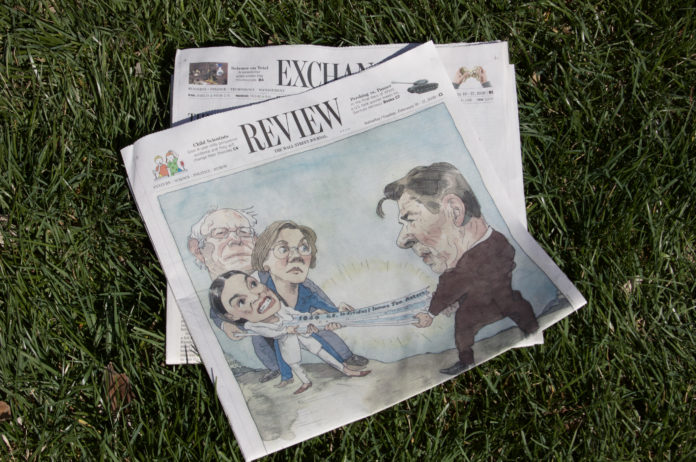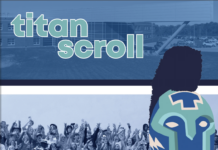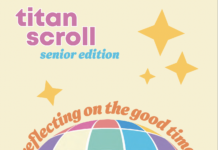Ella Skelsey
On Feb. 7, 2019, US Representative for New York Alexandria Ocasio-Cortez (AOC) and Senator Ed Markey announced the Green New Deal legislation. The Green New Deal proposes two major parts. The first is the environmental side and the second is the economic side of the deal.
The environmental side of the Green New Deal “achieve net-zero greenhouse gas emissions” and “secure for all people of the United States for generations to come — clean air and water, climate and community resiliency, healthy food, access to nature, and a sustainable environment” the document states.
In the economic side of the deal, it proposed, “to create millions of good, high-wage jobs and ensure prosperity and economic security for all people of the United States” and “to invest in the infrastructure and industry of the United States to sustainably meet the challenges of the 21st century.”
The deal proposes reaching these goals through a 10 year national mobilization in which states, “building resiliency against climate change-related disasters, such as extreme weather,” “repairing and upgrading the infrastructure in the United States” and “meeting 100% of the power demand in the United States through clean, renewable and zero-emission energy sources” along with 11 other points.
The Green New Deal had long been discussed, and when it was finally proposed, it left “a lot of gray area” said environmentalist and vegan, freshman Emmie Hope. Hope said, “Each individual thing that they’re trying to fix with the green New Deal, I think they need to\ put it under a microscope and really figure out, ‘How are we going to do this?’ ‘How are we going to make it work?’”
Biology teacher Ashley Jones is beginning to think about the changes needed. Jones said, “I think that something definitely needs to be done. I think that this is a good start and moving towards change. I mean, we obviously don’t know for sure what’s going to happen by 2050. But I think that the choices and changes we make now … are obviously pushing to the right direction.”
The deal states that by 2050 forests fires will burn at least twice as much in the United States than in the years before 2019, and that “more than 350 million more people to be exposed to deadly heat stress by 2050.” This is also one of the main reasons for such a short timeline for the deal having the ending of 2030, or a 10-year plan.
Freshman debate student Nick Harris said, “So the shift should not be what she [AOC] proposes, 2030 because that’s very soon. I think it would take a lot longer if we were to get to complete green energy.” The plan would not only take lots of time, but also lots of money.
The Green Party website rationalizes the cost of the plan by stating that, “This latter result, in turn, enables a 50% cut in the military budget, since maintaining bases all over the world to safeguard fossil fuel supplies and routes of transportation could no longer be justified. That military savings of several hundred billion dollars per year would go a very long way toward creating green jobs at home.”
Jones said she believes these new ideas could be very difficult for people to get used to and adjust their lives to, this possibly being one of the reasons the Senate voted no, 53-0 on the proposal. Jones said, “I think for people that are already aware of things and already work towards being more equal, more friendly with the environment, I think that it wouldn’t be that big a deal, but I think it would be a lot of change for businesses and industries, and just everything about the economy. I think that a lot of people are used to what they’re used to. Change is hard.”
Jones said that while some people may be resistant to change, the Green New Deal is providing strong evidence as to how climate change affects the earth and us as a species. However, Hope said she believes that while the Green New Deal is good, it needs to be tweaked so that it is stronger as a proposal.
“We have to do something and fix it now before we can’t do anything,” Hope said. “I also feel like the Green New Deal could use some improvements, just to make it more in depth. We don’t just want to make it seem good for the left, and we don’t want people on the right to be against it. We need to incorporate both sides, because guess what, we all live in America.”
Hope said people may disagree with what to change, it is agreeable that change needs to happen. One suggestion for change came from Harris. Harris said, “I think that the Green New Deal it sounds good, because it’s like, you know, go green! But when you read through what it actually proposes, this is not the way to go about it. There are a lot better ways for us to go green than to ban 100% of fossil fuels and go for 100% clean, renewable energy.”
There are conflicting views still though. Jones said she believes that one of the biggest changes will be a lifestyle change. “It’s a lifestyle change for a lot of people and driving Teslas may be the thing in California, but you don’t see a lot of Teslas in the Midwest … I mean those types of things aren’t as important to different people. So like I said, it will be a lifestyle change for a lot of the things that are trying to be promoted with this, which I don’t think are bad things, but it’s just that there’s a lot,” Jones said.
Along with the lifestyle change of going green, it will also force people out of jobs in the refining, mining and burning of coal, oil and gas, Harris said this is what’s causing him to question if it’s worth the loss of jobs and industry. “I still can’t get over how many jobs are going to be lost because of these industries to rely on these types of energies that are going to go out of business, and they’re trying to make up with it by providing 20 million jobs, but far more than 20 million are going to be lost,” Harris said.
A number of people say climate change is not our biggest priority, while others saying it is a major issue we cannot see from where we stand as a town. Harris said, “I mean, I still can’t believe they’re calling into Green New Deal. When I hear that I think instantly they’re trying to compare this to Roosevelt’s New Deals to end the Great Depression. What they’re trying to do, is compare this to the Great Depression. They’ve already compared it to World War One and World War Two by calling it the worst war we’ve fought.”
On the other side of the debate, Hope said, “We’re pretty lucky because right now, we haven’t noticed much of a change where we live. But like people in Europe and like other countries in China, living with smog, everywhere, and since we can’t see that, I think a lot of people are blind to the fact that the Earth is changing.”
Overall, the environment is what supports us and we have been relying on it for our whole lifetime as a species. Hope said, “I mean, without the environment, we wouldn’t have anything,”














